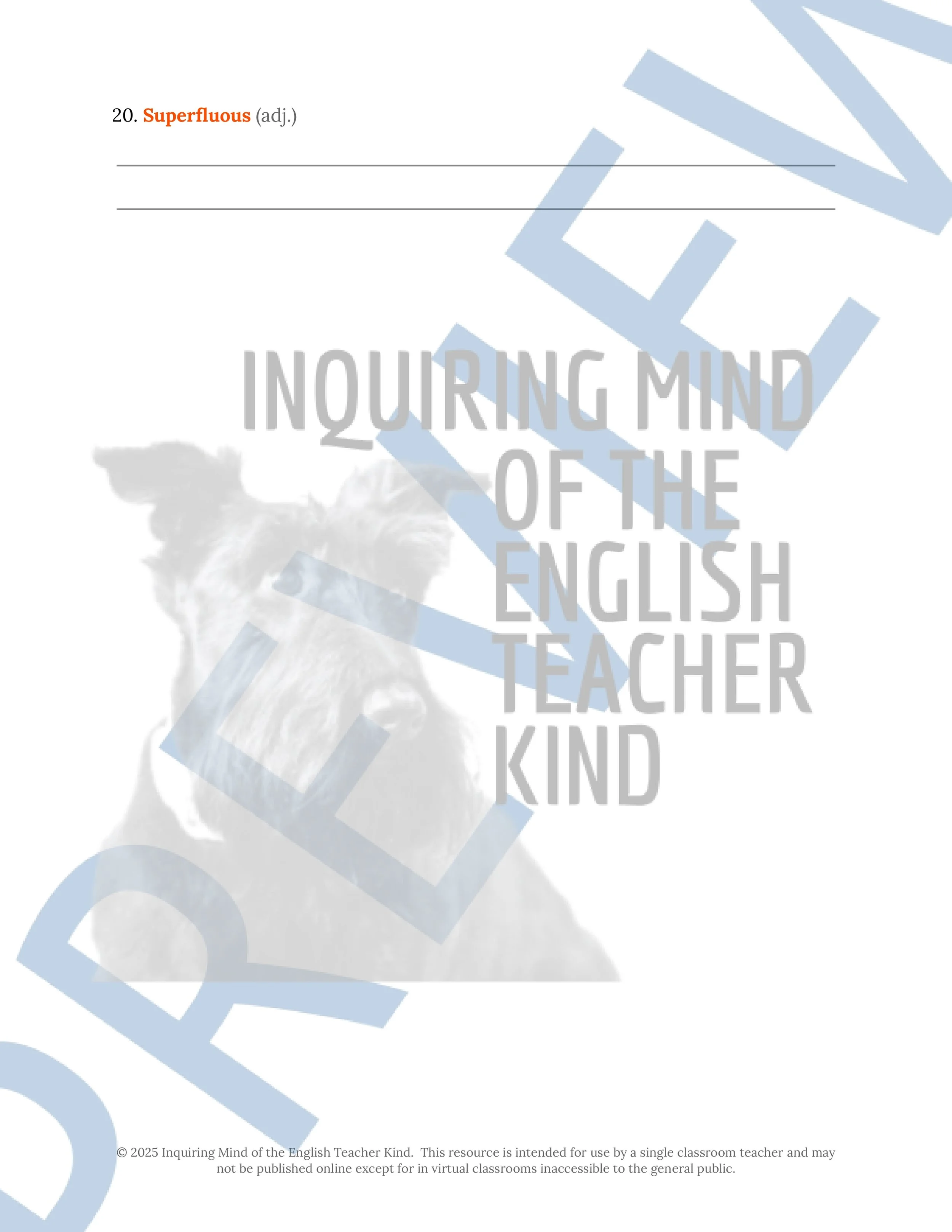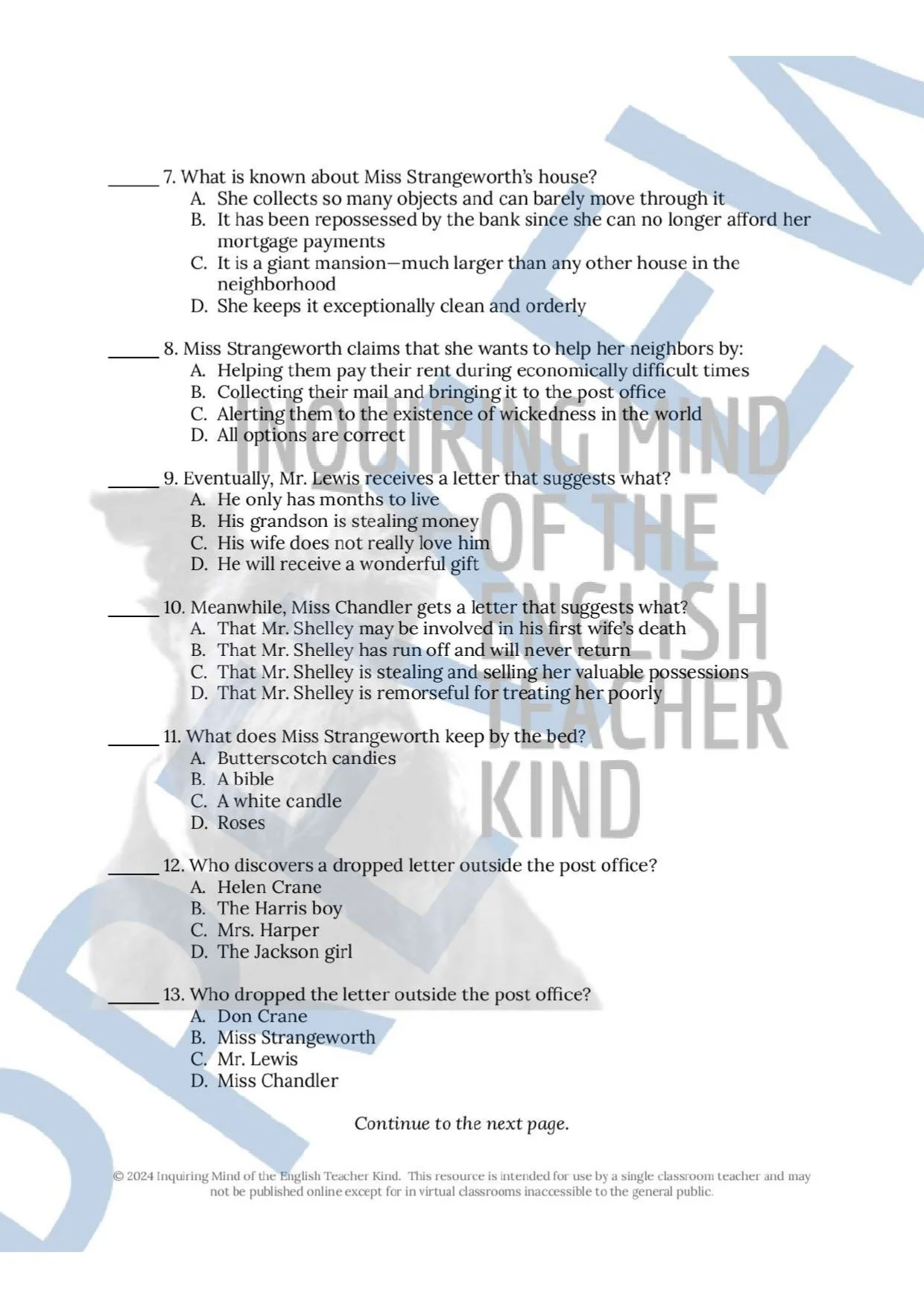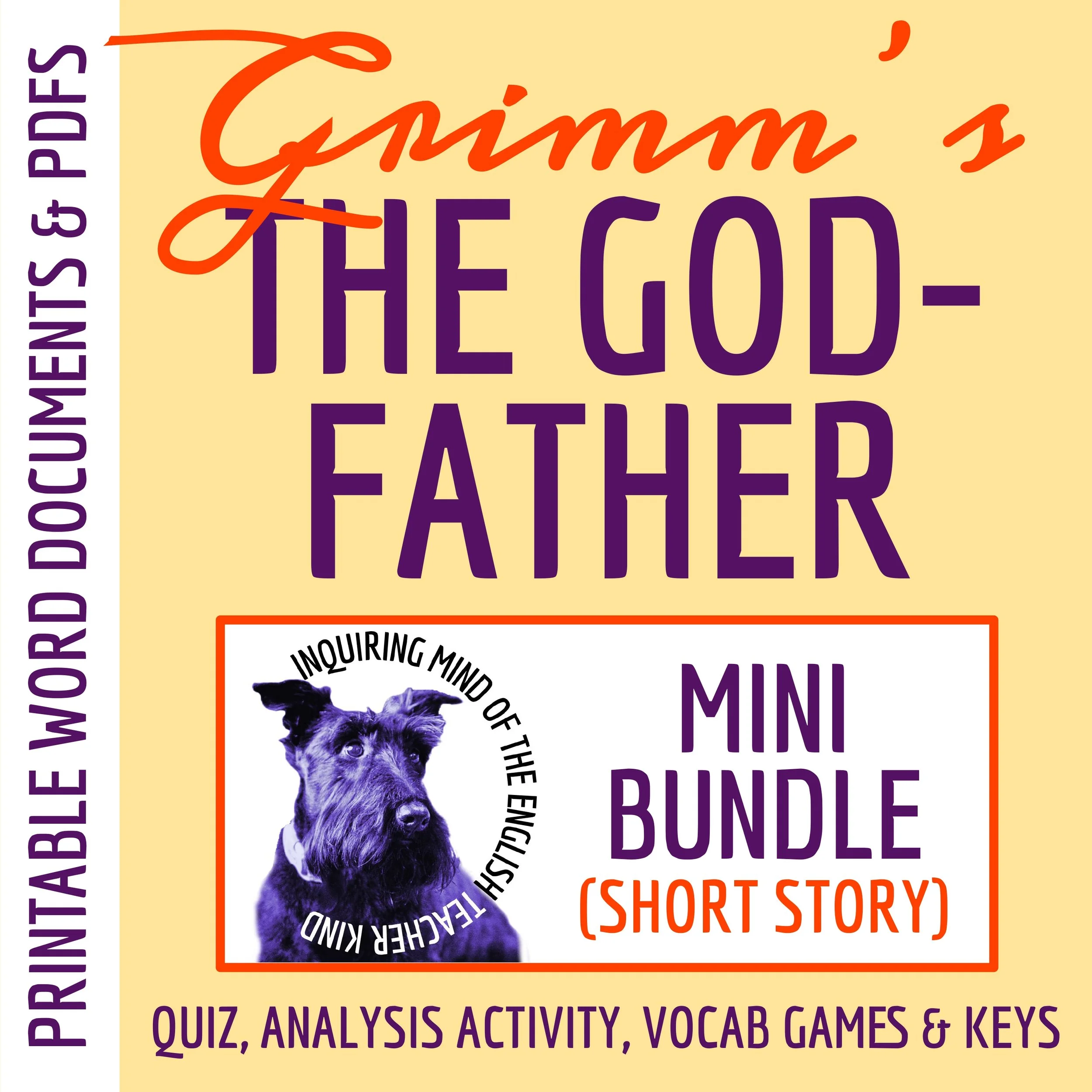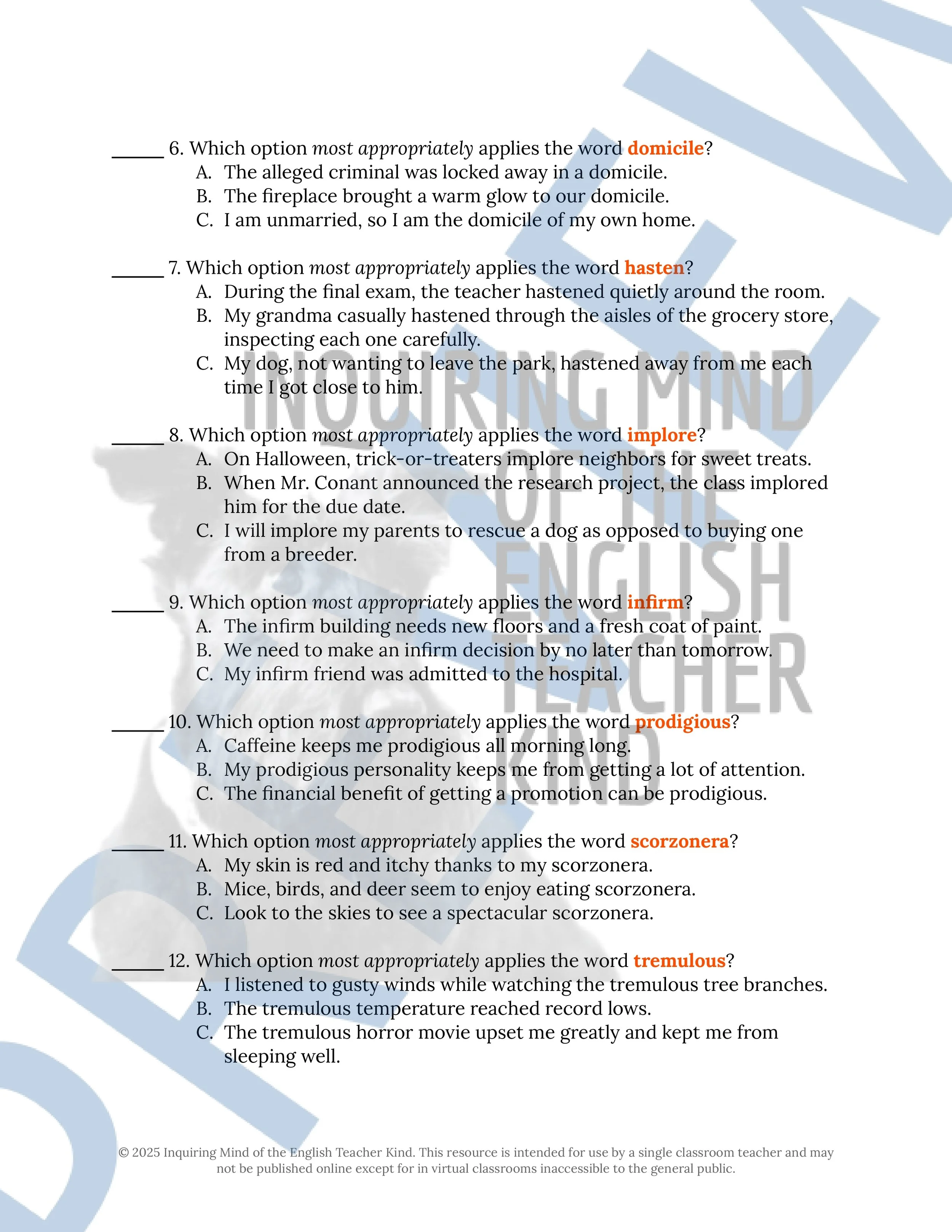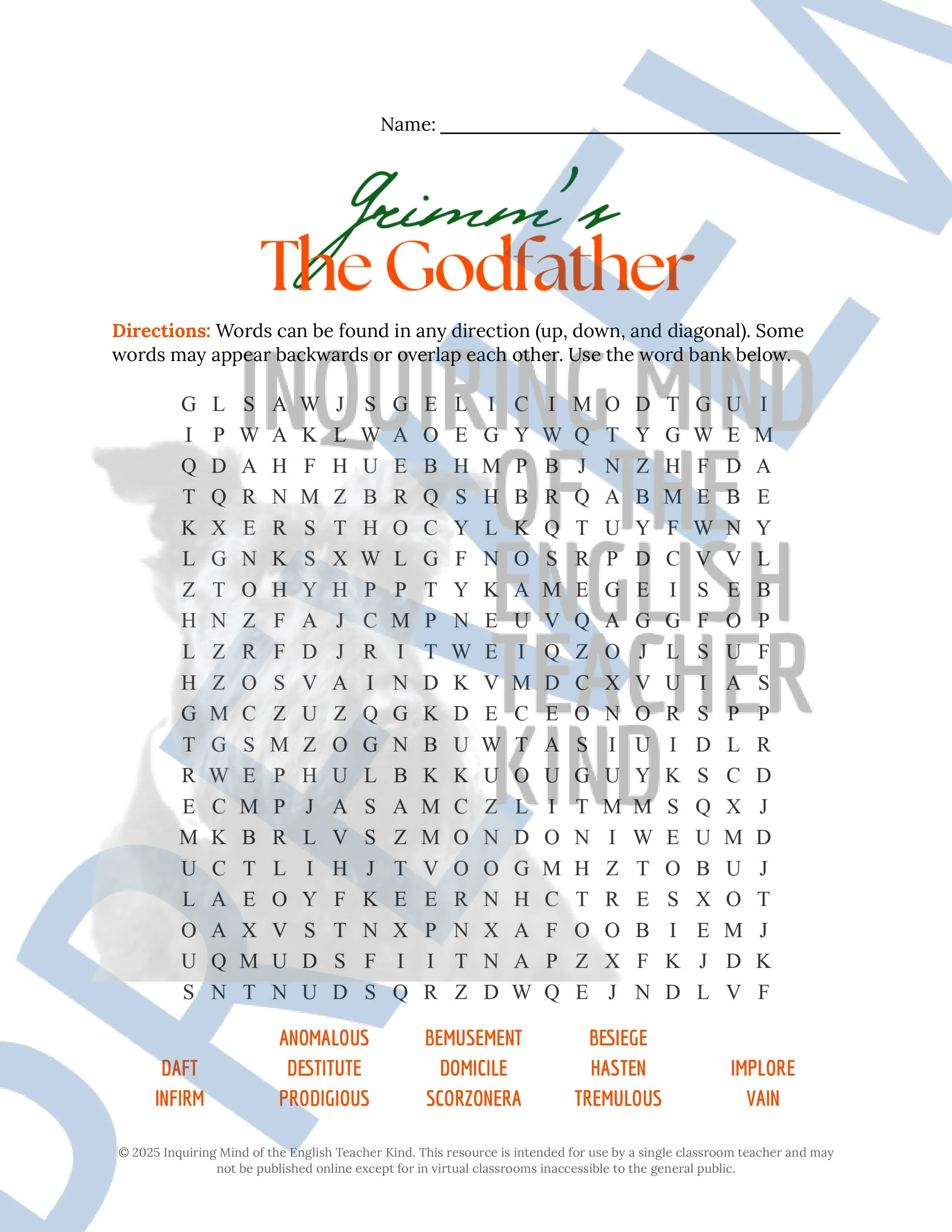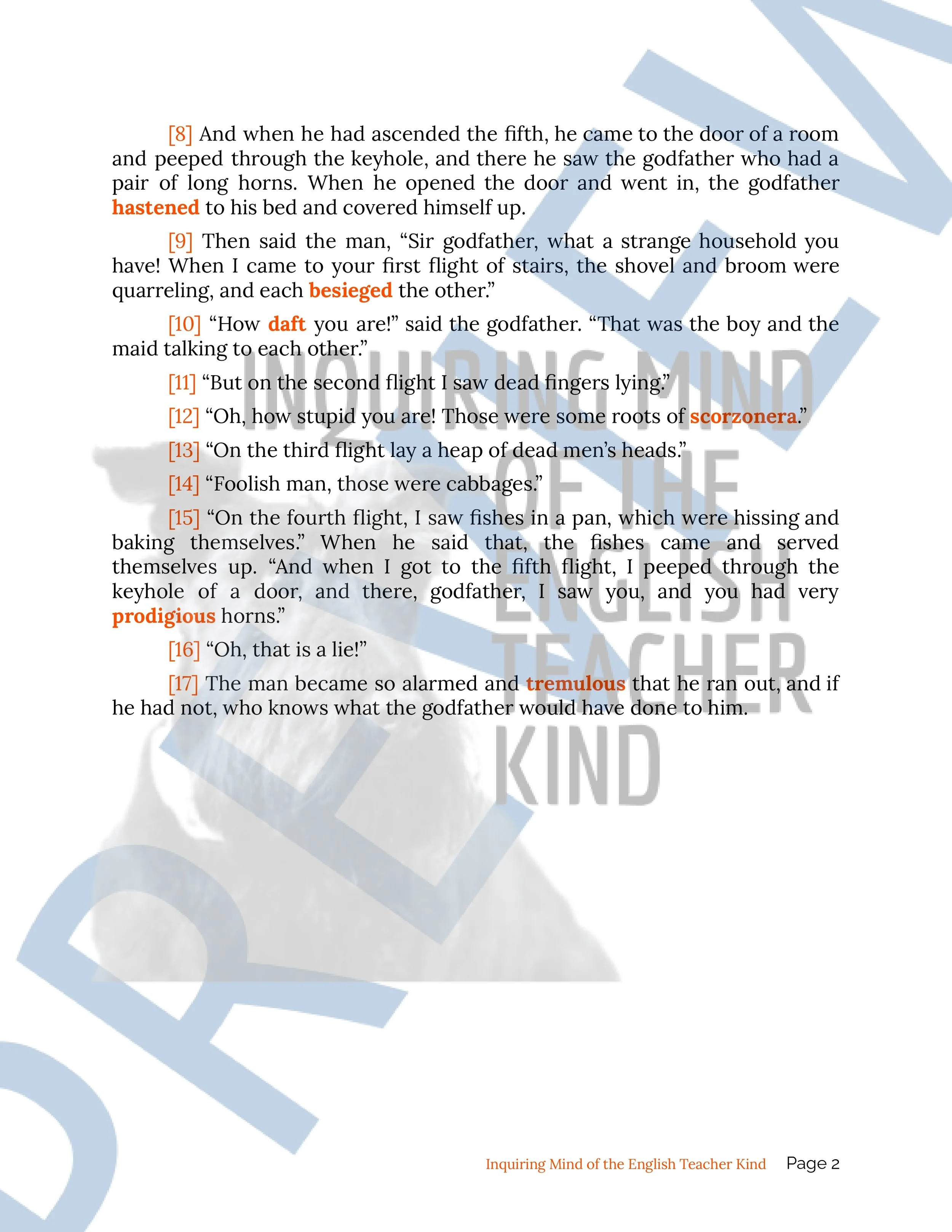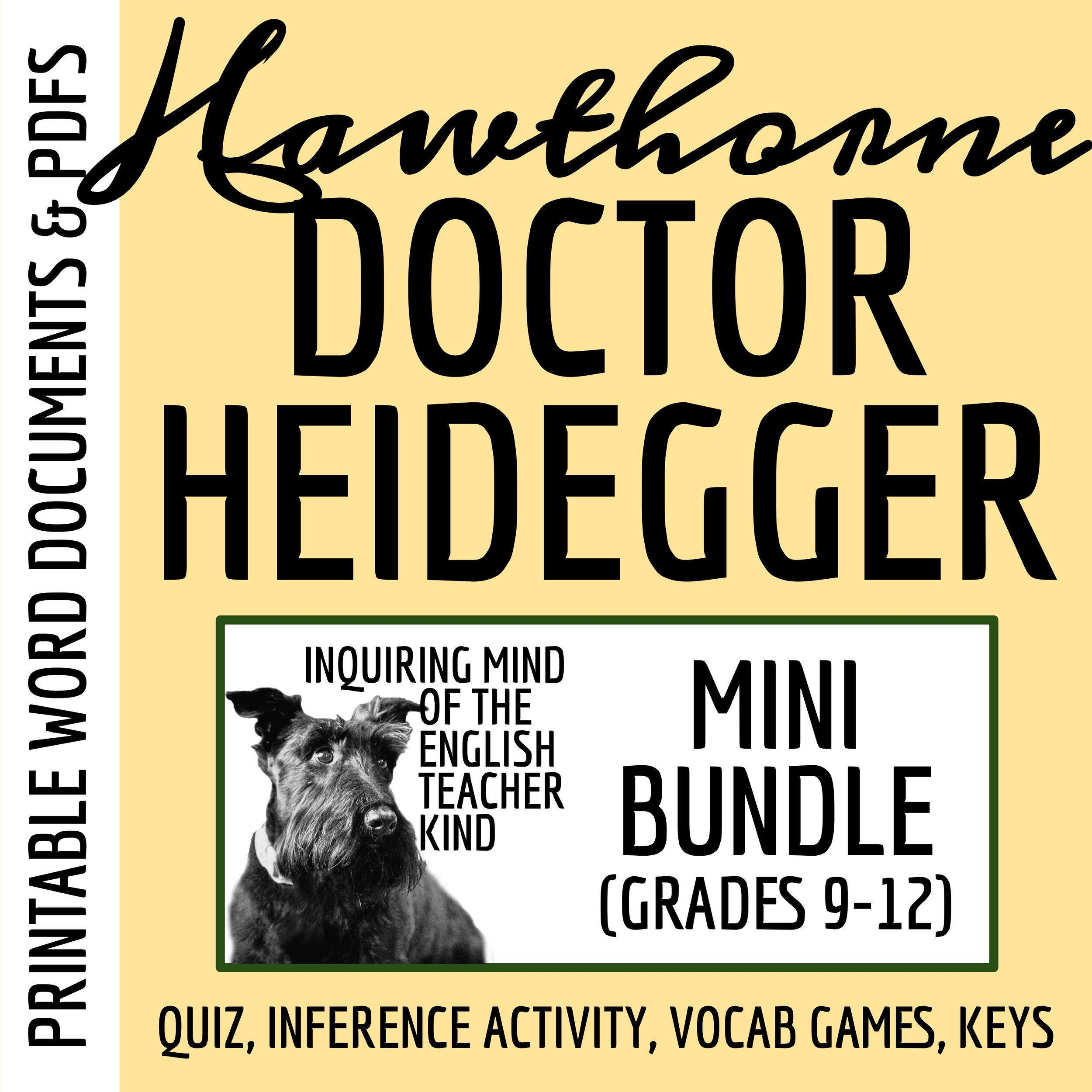 Image 1 of 11
Image 1 of 11

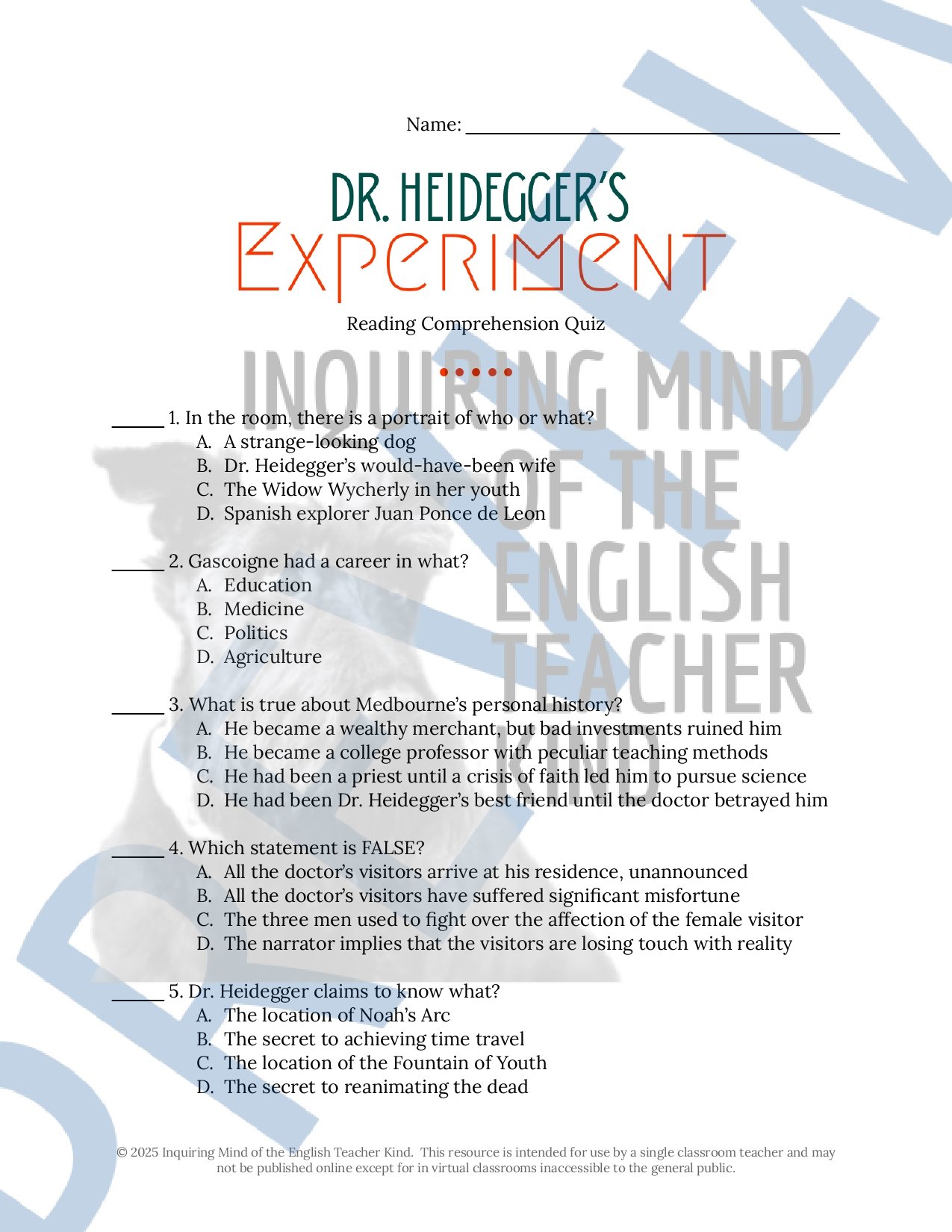 Image 2 of 11
Image 2 of 11

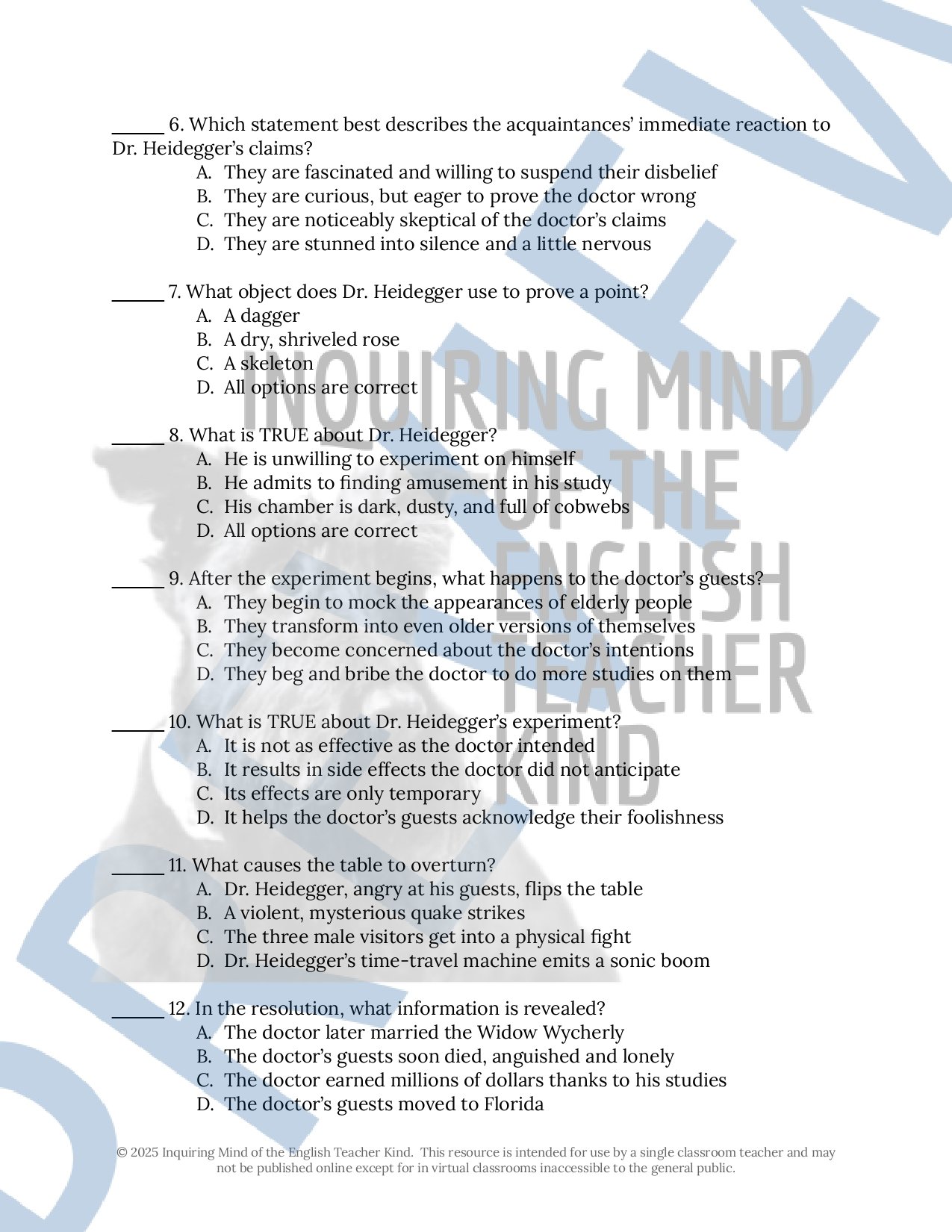 Image 3 of 11
Image 3 of 11

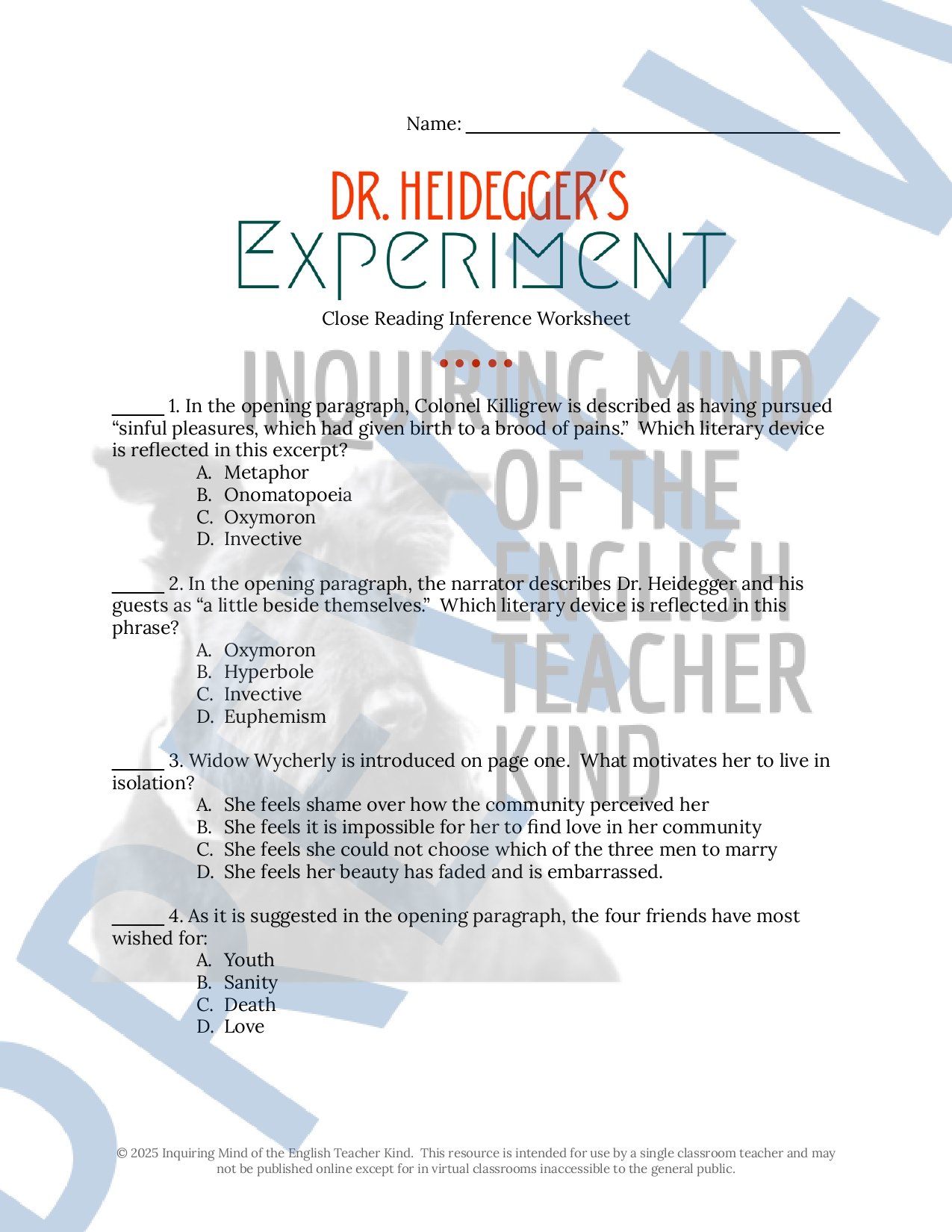 Image 4 of 11
Image 4 of 11

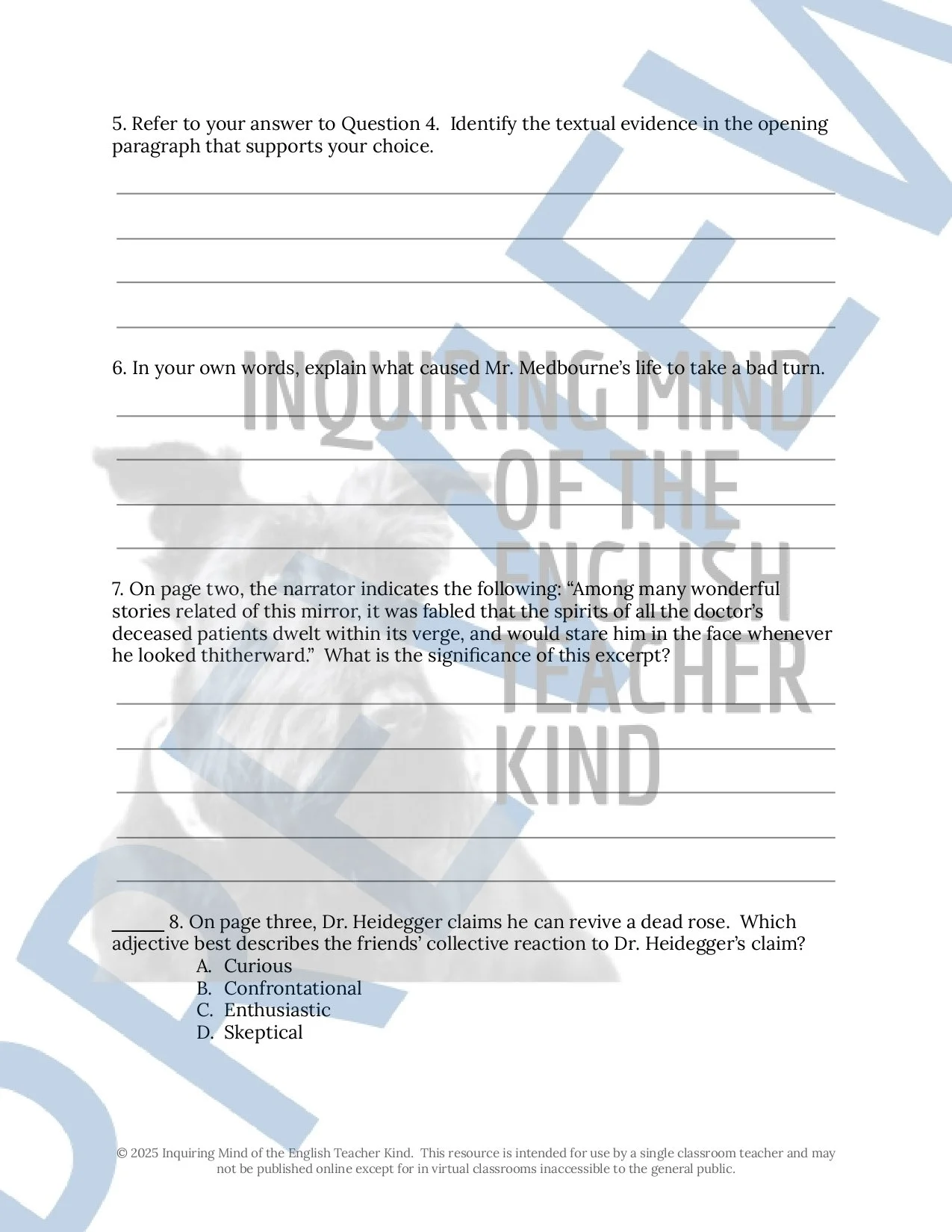 Image 5 of 11
Image 5 of 11

 Image 6 of 11
Image 6 of 11

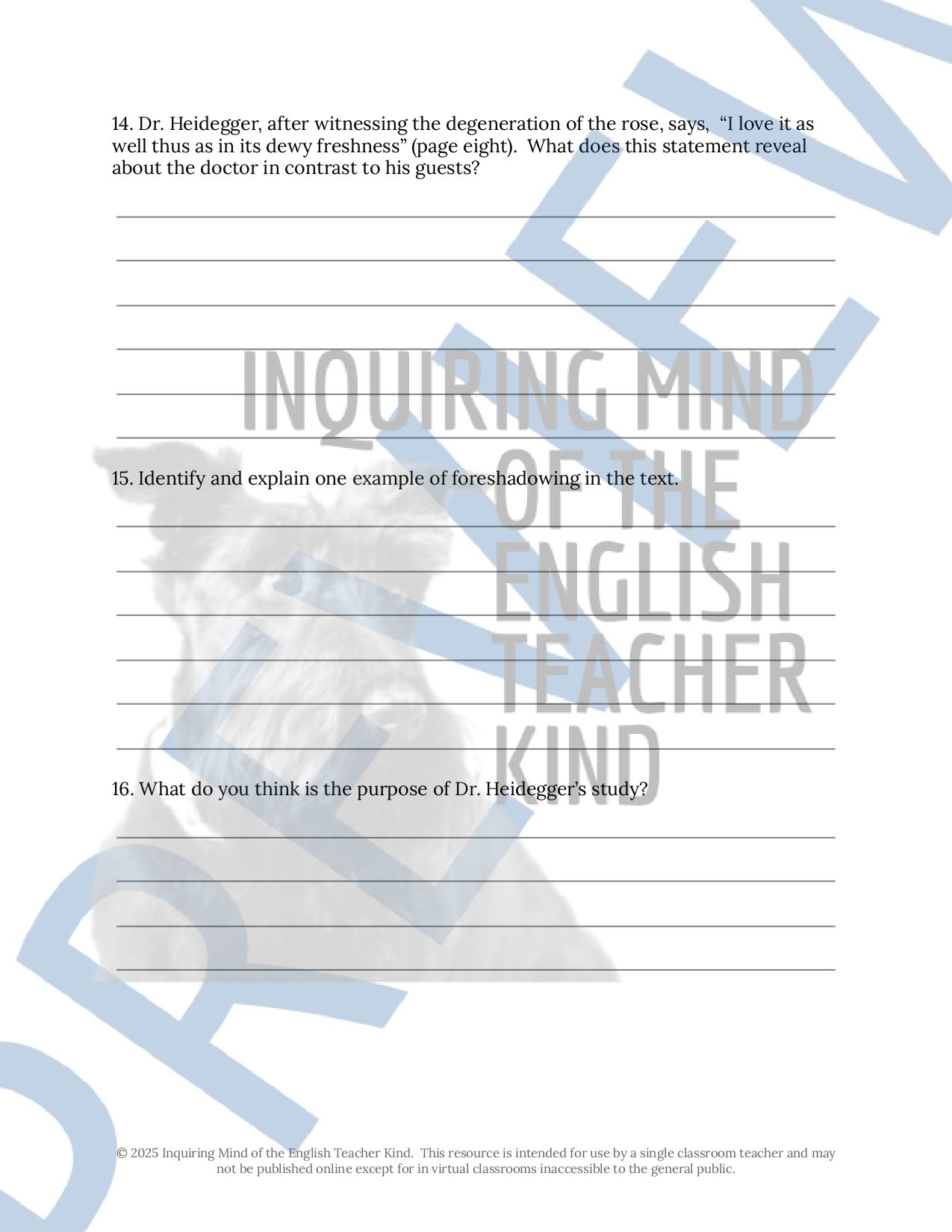 Image 7 of 11
Image 7 of 11

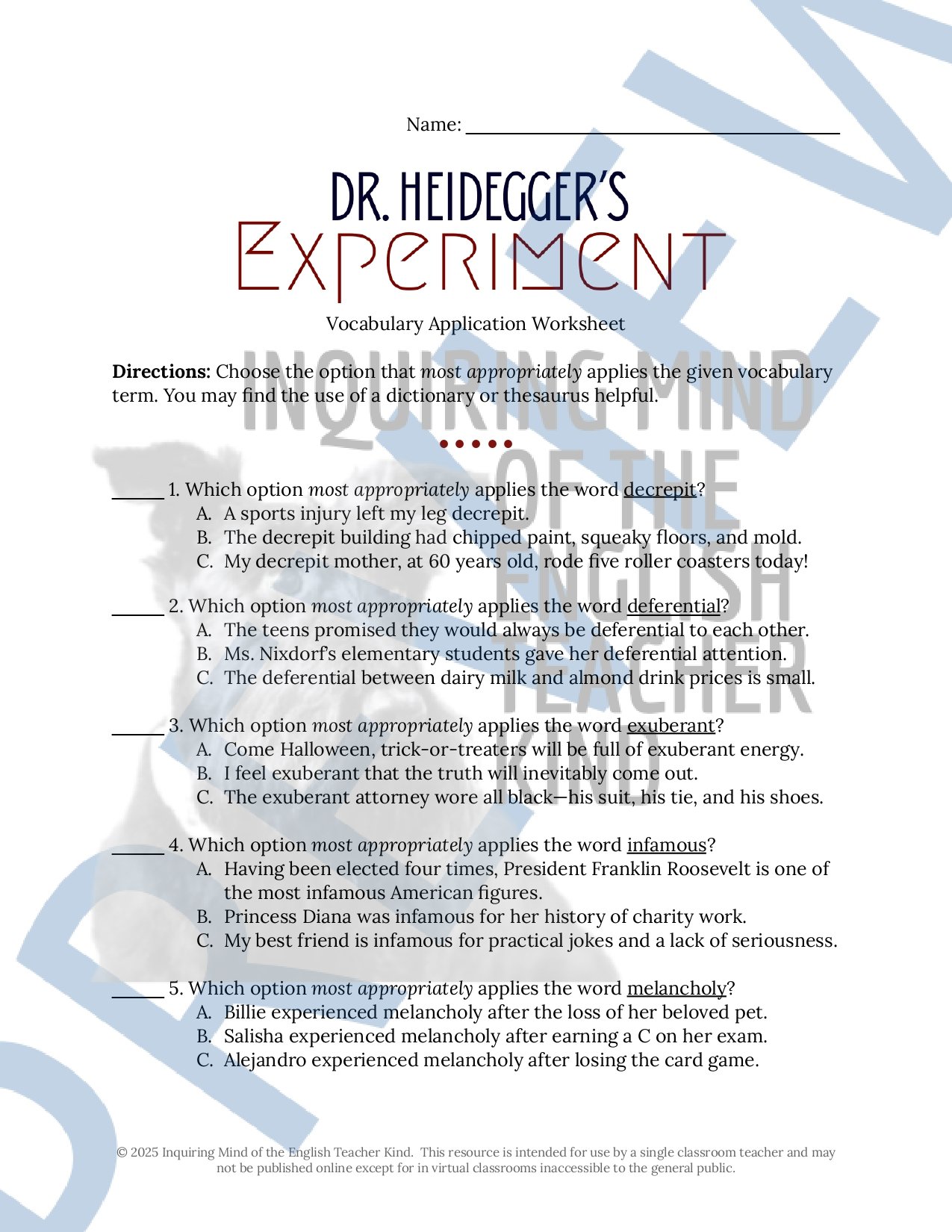 Image 8 of 11
Image 8 of 11

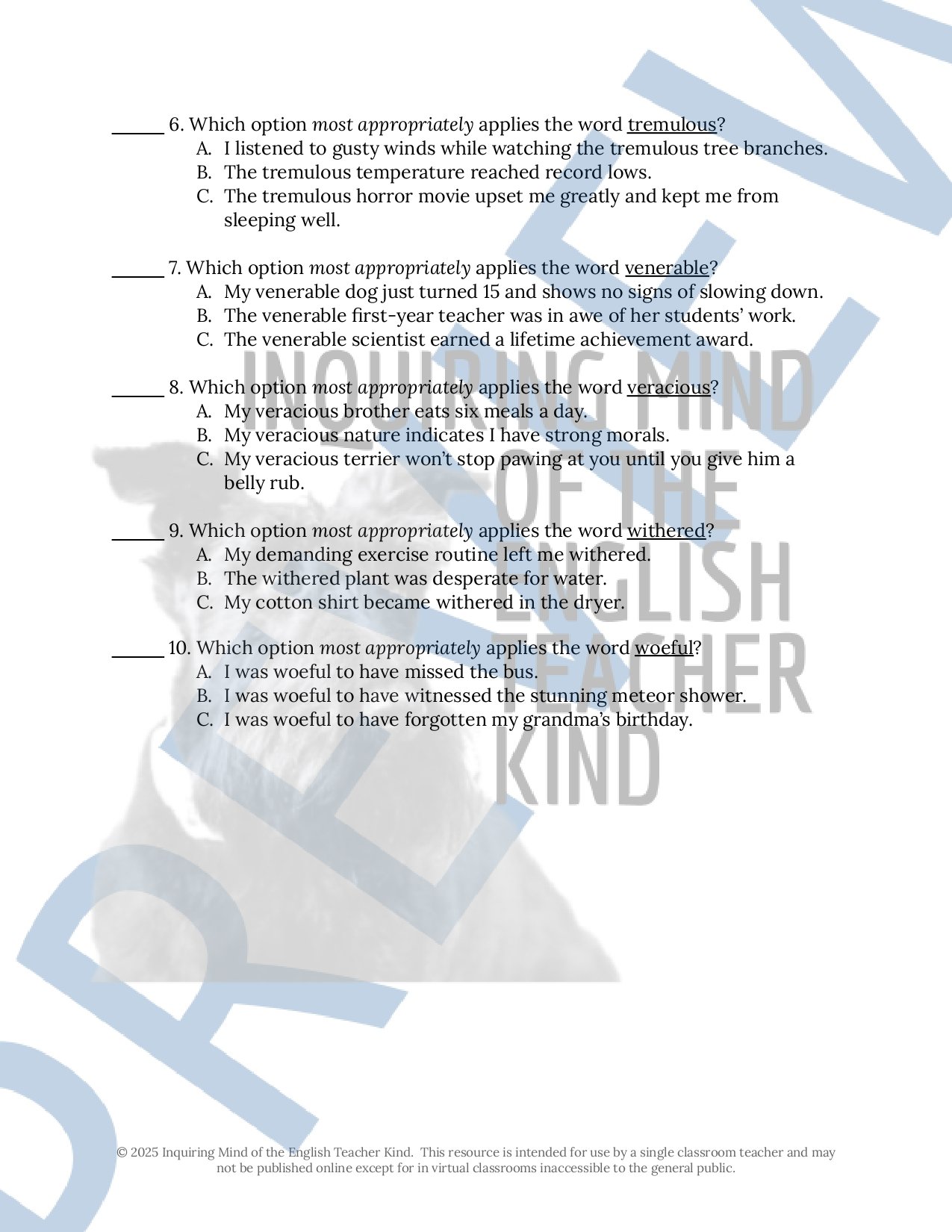 Image 9 of 11
Image 9 of 11

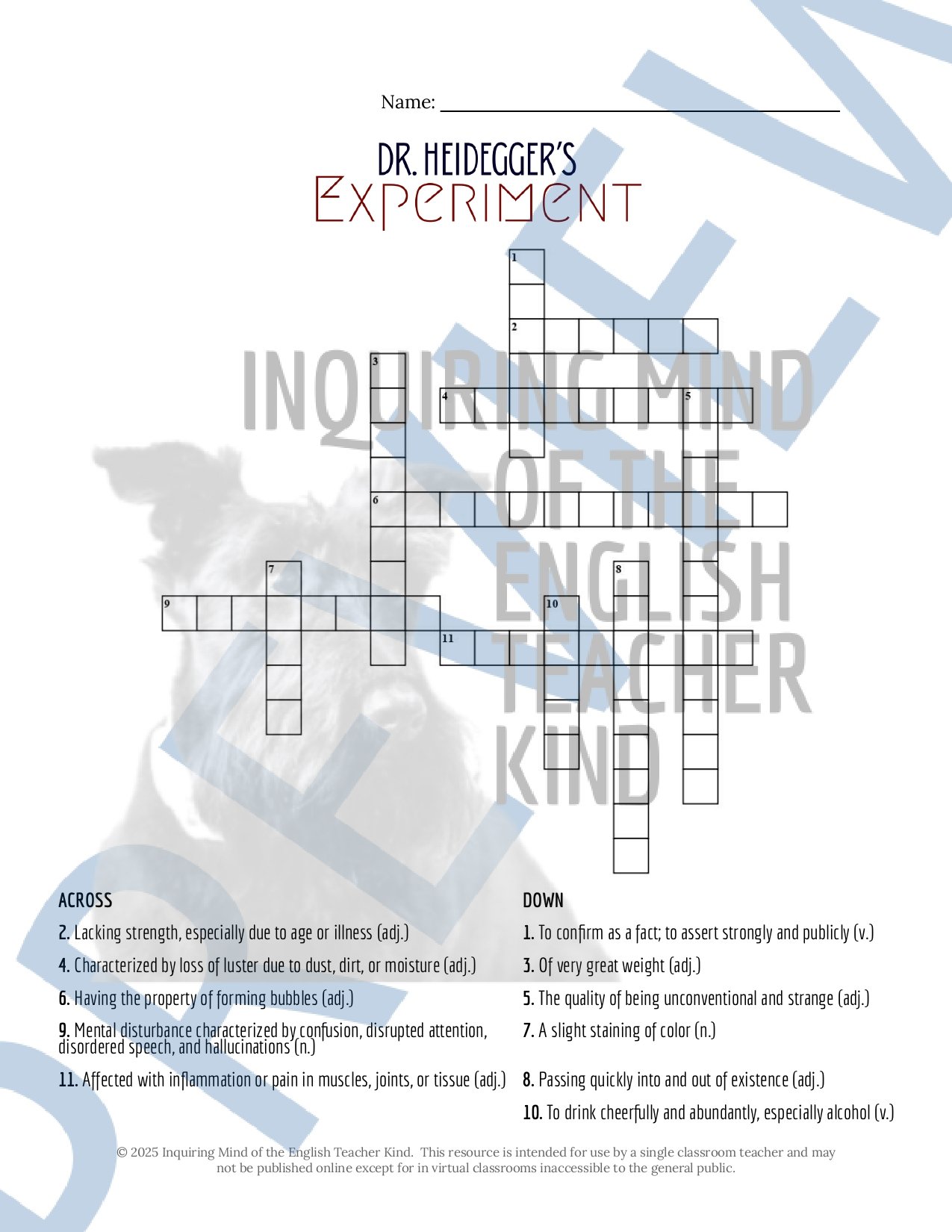 Image 10 of 11
Image 10 of 11

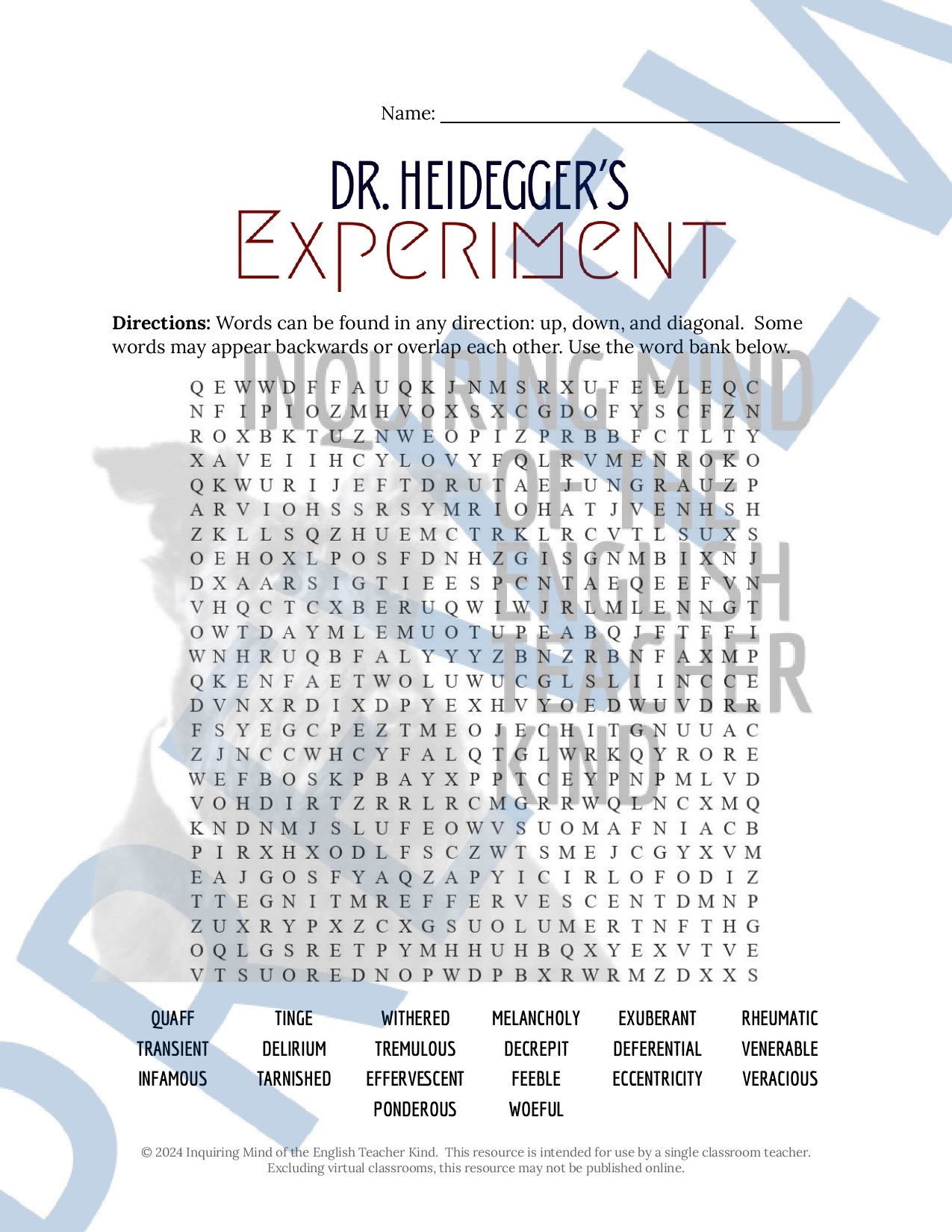 Image 11 of 11
Image 11 of 11












"Dr. Heidegger's Experiment" Quiz, Inference Worksheet, and Vocabulary Games
Evaluate general reading comprehension and support the development of close reading analysis skills with this bundle of formative assessments covering Nathaniel Hawthorne's short story "Dr. Heidegger's Experiment." Included are the following: a plot-based quiz, a close reading worksheet, a craft analysis activity, a vocabulary application worksheet, a word search, a crossword puzzle, the public domain narrative, and answer keys. Materials are delivered in editable Word Document and printable PDF formats. (Alternatively, a Google Drive bundle option is available.) By engaging with these materials, students will do the following:
Read for literal comprehension
Consult reference materials to learn and verify word meanings as needed
Discern the most proper application of words as they are used in sentences
Infer the intended effects of the author's word choices and narrative techniques
Explore how characters think, behave, interact, and develop
Compare and contrast characters
Apply knowledge of literary devices including euphemism, foreshadowing, metaphor, personification, symbolism, and more
Write about literature with clarity, accuracy, and precision
Support claims and inferences with sound reasoning and relevant evidence
Come to class better prepared to discuss works of fiction
Resources are available for a variety of Gothic novels and short stories:
Evaluate general reading comprehension and support the development of close reading analysis skills with this bundle of formative assessments covering Nathaniel Hawthorne's short story "Dr. Heidegger's Experiment." Included are the following: a plot-based quiz, a close reading worksheet, a craft analysis activity, a vocabulary application worksheet, a word search, a crossword puzzle, the public domain narrative, and answer keys. Materials are delivered in editable Word Document and printable PDF formats. (Alternatively, a Google Drive bundle option is available.) By engaging with these materials, students will do the following:
Read for literal comprehension
Consult reference materials to learn and verify word meanings as needed
Discern the most proper application of words as they are used in sentences
Infer the intended effects of the author's word choices and narrative techniques
Explore how characters think, behave, interact, and develop
Compare and contrast characters
Apply knowledge of literary devices including euphemism, foreshadowing, metaphor, personification, symbolism, and more
Write about literature with clarity, accuracy, and precision
Support claims and inferences with sound reasoning and relevant evidence
Come to class better prepared to discuss works of fiction
Resources are available for a variety of Gothic novels and short stories:
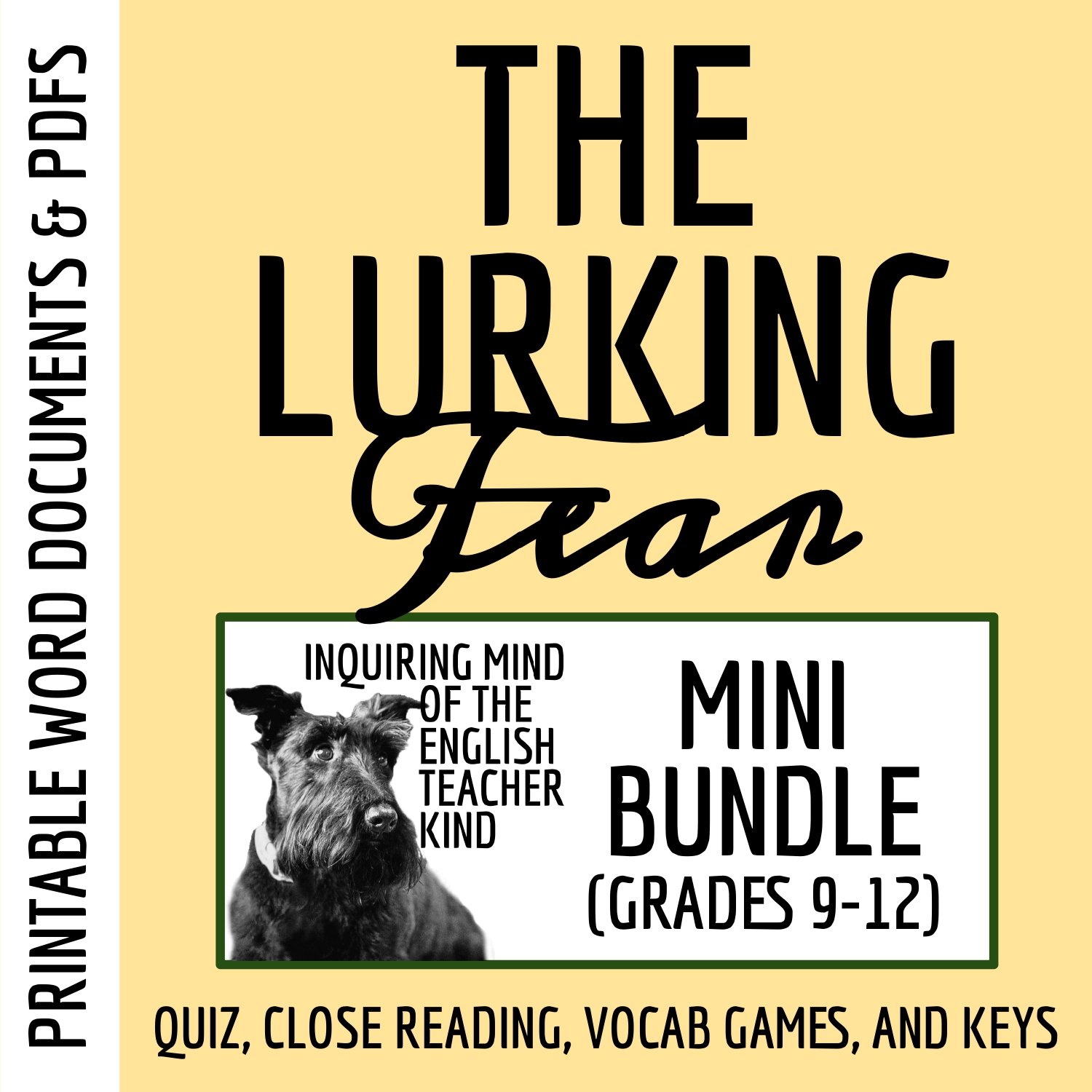
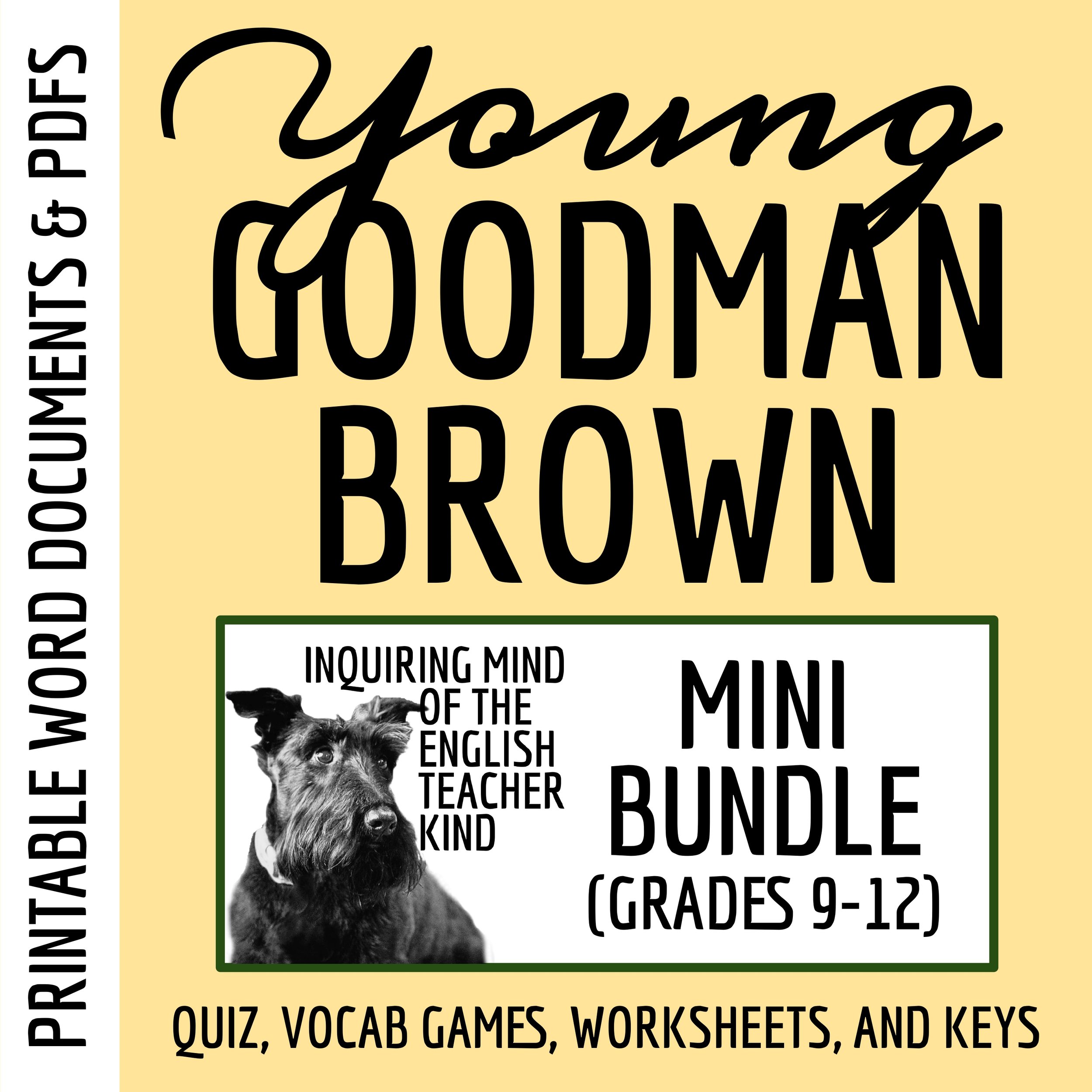
Preview this resource:
Evaluate reading comprehension, support the development of close reading analysis skills, and reduce time spent assessment planning with this bundle of materials covering "Dr. Heidegger's Experiment" by Nathaniel Hawthorne. Included are the following: a plot-based, multiple choice quiz; a rigorous close reading activity; a copy of the public domain short story; and answer keys.












